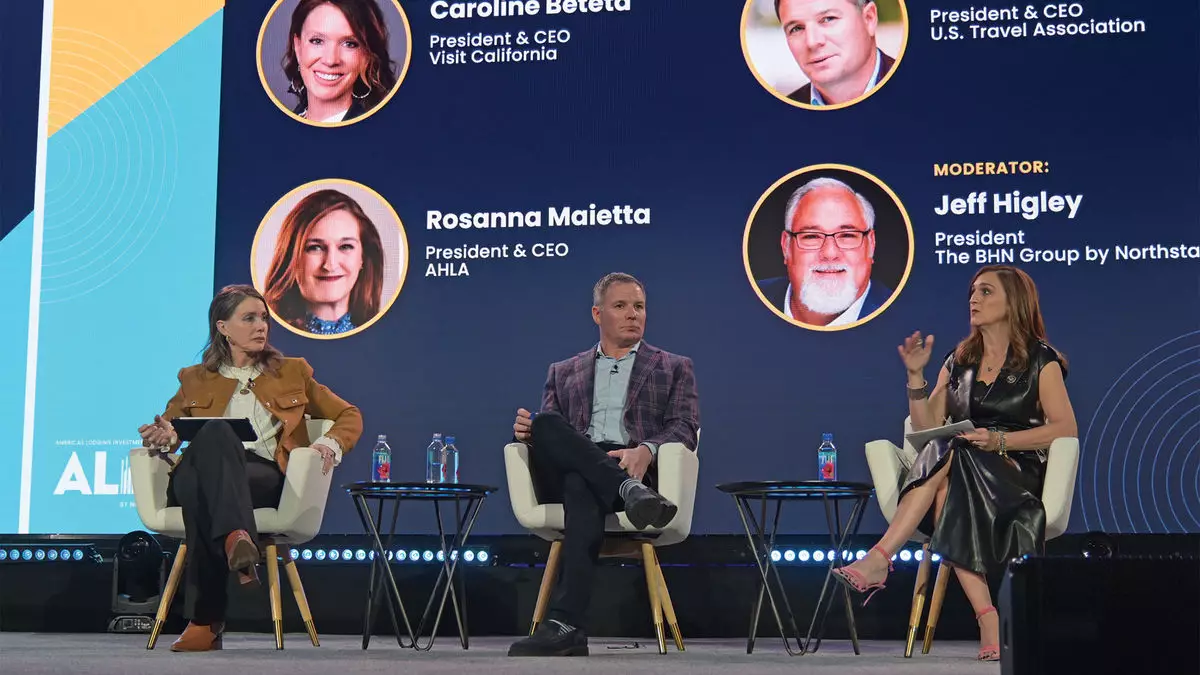The hospitality sector in the United States is facing a critical crossroads as it grapples with the implications of immigration reform and evolving border policies. At the recent Americas Lodging Investment Summit held in Los Angeles, leading hotel executives voiced their concerns about labor shortages and the need for a more effective legal immigration framework. This article delves into the multifaceted challenges the industry faces and explores potential pathways for reform that could alleviate workforce issues while also boosting business.
The hospitality industry has long been recognized as a fundamental contributor to the U.S. economy, employing millions and enhancing the sector’s vibrancy through diverse offerings. However, an enduring problem plaguing this industry is the difficulty in securing suitable labor, particularly due to rigid immigration laws. Hilton CEO Chris Nassetta emphasized that workforce accessibility is not merely a current challenge but a persistent issue that merits immediate attention. He argues that comprehensive immigration reform is essential to enable various classifications of workers—particularly those with specialized skills—to enter the workforce more efficiently.
Craig Smith, the CEO of Aimbridge Hospitality, further articulated the need for a balanced immigration approach that doesn’t solely emphasize border security. His argument for facilitating legal immigration processes aligns with the insights presented by other industry leaders who argue that meeting labor demands should be a priority for policymakers. The emphasis on skill-based immigration could provide a direct remedy to the labor shortages experienced by many hotels and resorts, especially in regions that rely heavily on seasonal workers.
The discussion surrounding immigration is often accompanied by emotional arguments that complicate the policy landscape. Rosanna Maietta, head of the American Hotel & Lodging Association, highlighted how contentious immigration reform can be. With polarization around the subject, the prospect for comprehensive legislative solutions seems bleak. However, industry leaders are not shying away from advocating for manageable reforms, particularly improvements to the H-2B visa program, which many resorts depend on during peak seasons.
Maietta pointed out the inconsistencies in the random lottery system, which governs H-2B visa allocation. The unpredictability of this process undermines businesses’ ability to plan adequately for their operational needs, reinforcing the argument for reform that offers businesses the stability they seek to thrive.
The hospitality industry is intricately linked to international travel, and executive concerns extend beyond labor shortages to include issues affecting inbound tourism. Marriott International CEO Anthony Capuano raised alarms about “enhanced vetting” measures being discussed in the current administration, recalling the damaging effects such policies had during previous administrations. The back-and-forth on border policies generates an atmosphere of uncertainty that could dissuade travelers from visiting the U.S.
Geoff Freeman, CEO of the U.S. Travel Association, offered a sobering analysis of the current situation, stressing the mixed signals being sent to international visitors. He articulated a two-pronged issue: on one hand, the U.S. is seemingly unwelcoming to illegal visitors; on the other, the message regarding legal travelers is unclear. This perception can lead to a significant downturn in tourism, as potential visitors may look elsewhere for vacation opportunities where the welcome mat is firmly in place.
Adding to the complications surrounding inbound travel is the ongoing visa processing crisis. With forty-five percent of countries worldwide requiring visas to enter the United States, prolonged waiting times for interviews—exceeding 400 days in countries like India and over 680 days in Colombia—are alarmingly high. Freeman’s observations highlight the detrimental effect this has on the hospitality industry, as potential clientele is left waiting endlessly, and consequently, feeling discouraged from visiting.
Despite the myriad of challenges outlined, there remains an underlying optimism among industry leaders. Nassetta’s belief in the fundamental strength of the hospitality sector shines through amidst the chaos of policy uncertainty. The adage that “business likes certainty” rings especially true here; decisive, reasonable immigration policies could foster a more stable environment that allows the industry to flourish.
The hospitality industry is at a pivotal juncture where proactive discussions around immigration reform could pave the way for a brighter future. By acknowledging the emotional complexities of the immigration debate and focusing on practical solutions for workforce needs and tourism revitalization, industry leaders can advocate for better policies that enhance their businesses while serving the broader economy.


Leave a Reply